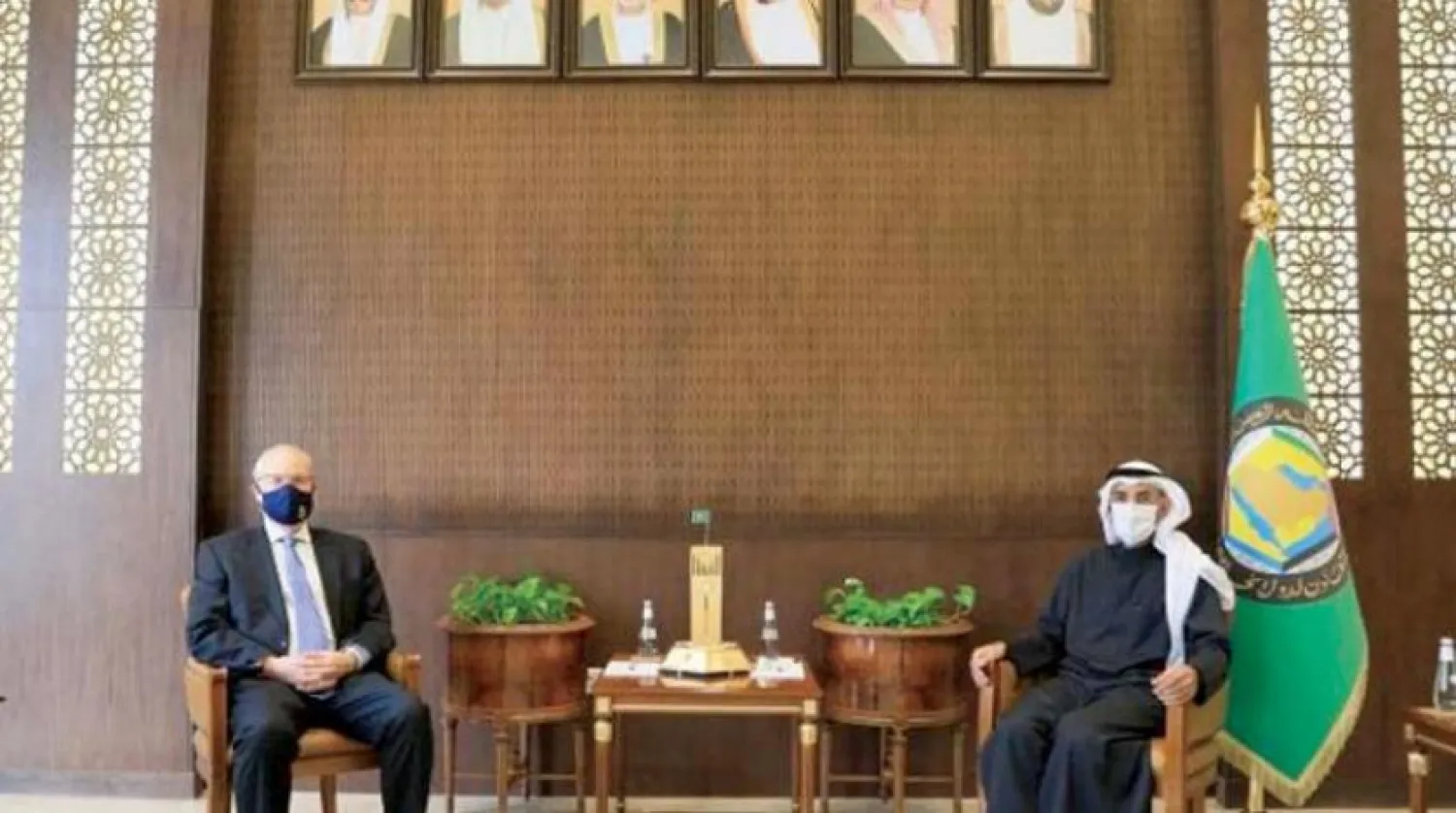Washington is seeking to mobilize an international position against the Iran-backed Houthi group’s attacks, as its envoy to Yemen, Tim Lenderking starts a new Gulf tour to "reactivate peace and ceasefire efforts in Yemen."
Lenderking’s tour coincides with the Houthi attacks on civilian facilities in the UAE capital, Abu Dhabi, which killed three people and wounded several others.
The US envoy's first official trip this year comes after a series of visits he made last year that failed to achieve a "cease-fire" agreement in Yemen.
A statement released by the State Department on Wednesday said the new tour aims to "reinvigorate peace efforts" in coordination with the UN, senior regional government officials, and other international partners, by touring Gulf states and the British capital, London.
“The Special Envoy and his team will press the parties to de-escalate militarily and seize the new year to participate fully in an inclusive UN-led peace process,” the statement said.
Lenderking will also focus on the urgent need to mitigate the dire humanitarian and economic crises facing Yemenis.
As the UN Acting Assistant Secretary-General for Humanitarian Affairs and Deputy Emergency Relief Coordinator briefed the UN Security Council last week, 16 million people in Yemen desperately need aid totaling about $3.9 billion. It is imperative that donors, especially regional donors, provide additional funding and that all parties to the conflict take steps to improve humanitarian access and address Yemen’s fuel crisis, according to the statement.
On Wednesday, the UAE embassy in the US called on the Biden administration and Congress to support the re-designation of the Houthi militia as a foreign terrorist organization.
Three people were killed after a Houthi missile and drone attack set off an explosion next to oil giant ADNOC's storage facilities and started a fire at Abu Dhabi airport.
The latest Houthi aggression triggered more American voices demanding the US administration to redesignate the Houthis as a terrorist organization, Axios news website said.
Emirati Foreign Minister Abdullah bin Zayed asked Secretary of State Antony Blinken in a phone call on Monday to re-designate the militias as a terrorist organization, a senior Emirati official told Axios.
Moreover, Sheikh Mohamed bin Zayed Al Nahyan, Crown Prince of Abu Dhabi and Deputy Supreme Commander of the UAE Armed Forces, and the US Defense Secretary, Lloyd Austin, have deliberated the strategic relations between the UAE and the US across various levels, with special emphasis on military and defense fields.
The talks touched on the recent Houthi terrorist militia attacks on civil facilities in the UAE and the threat they pose to regional security and stability, as well as the need for a decisive international stance in the face of such practices.
The US Defense Secretary reaffirmed his country's condemnation of the attacks and emphasized standing by the UAE in the face of threats to its security and territorial integrity.
For his part, GCC Secretary-General Nayef Al-Hajraf stressed the importance of applying international pressure on the Iran-backed Houthi militia to end its terrorist activities and seriously engage in the Yemen peace process.
His remarks came during his meeting with Lenderking on Wednesday in his office in Riyadh. During the meeting, regional and international efforts were discussed to reach a political solution.
In a statement made by US National Security Adviser Jake Sullivan, the United States had pledged to hold the militias accountable for targeting Emirati facilities and the killing of civilians.
“The United States strongly condemns today’s terrorist attack in Abu Dhabi in the United Arab Emirates, which killed three innocent civilians. The Houthis have claimed responsibility for this attack, and we will work with the UAE and international partners to hold them accountable,” he said in his statement earlier in the week.
Also on Tuesday, Pentagon Press Secretary John F. Kirby said in a press conference that the US “remains committed to the UAE's security and ability to defend itself and we stand united with our Emirati partners in defending against all threats to their territory.”
However, Kirby did not mention any additional Pentagon plans about weapons and equipment that could be provided to the UAE. He stressed that "the attack was sufficient to consider it a threat to the Americans and put them at risk."
“We take these attacks on the Emiratis seriously and we're going to continue, again, to look for ways to make that defense partnership and their ability to defend themselves stronger and -- and better,” to ensure that they have the capabilities to confront this type of attack, similar to the one carried out by the Iran-backed Houthis.









